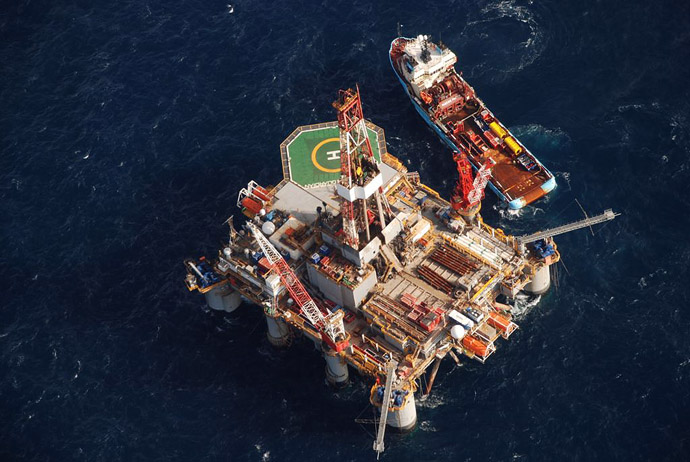Do oil prospects justify UK ‘colonial plundering’ in Falklands?
The prospect of an oil boom in the Falklands would make it economically sustainable for the UK to protect its overseas territory. But it is not morally justifiable “to go on a colonial plundering mission,” believes journalist Ken Hurst.
Falklanders have voted to remain a British Overseas Territory, following months of political tensions between Britain and Argentina. Islanders voted almost unanimously to remain under the sovereignty of the United Kingdom, with 98.8-per cent of votes in favor.
The poll has already been dismissed as “a silly game” by Buenos Aires, which says the islands - called Las Malvinas in Argentina - were stolen from them by Britain almost two centuries ago.
Meanwhile, speculation grows that the referendum is all about oil prospects rather than the islanders’ national identity. And it is these prospects that are also believed to be behind the intensified diplomatic tensions between the UK and Argentina around the islands.
There are an estimated 60 billion barrels of oil in the Falklands’ basin worth US$167 billion dollars. And that would mean more oil than the reserves of the USA, Qatar, or even Libya.
“It has always been questionable whether it’s morally or logistically sustainable to try to protect a colony that is 8,000 miles away. I suppose the argument that one could have added to that is: is it economically sustainable sending warships and so on and so forth. But of course the oil rather changes all that,” Ken Hurst from TNT Magazine website told RT.
However, he went on to say, it only changes it if you believe it’s morally justifiable to go on “a colonial plundering mission - something we did in the 18th and 19th centuries.”
“And personally I don’t happen to believe it is,” the expert added.

In any case, the March 10-11 referendum will not help to resolve the British-Argentinian dispute, Hurst concluded.
“Referendums don’t resolve disputes. Actually, negotiation resolves disputes. And that’s what really needs to happen down there in the Falklands or the Malvinas, whichever you call them,” he believes.
However, John Glen, a British Conservative Party MP argues that if “the vast majority” of the Falkland Islanders wish to remain part of the UK, then “what’s the purpose of any negotiation.”
“Surely, we must respect the democratic will of that majority of the population,” he stated in an interview with RT.
Argentinian President Cristina Fernández de Kirchner “has been ramping up the rhetoric over the last couple of years” – a time when the country’s economy had an inflation of 25-30 per cent, Glen pointed out.
“She should leave British territories alone when the vast majority of people want to remain so,” he stated.
In Glen’s opinion, the “Argentinian president could perhaps do better service to her people by focusing on the failing economy, the ridiculously high inflation and concentrate on domestic economic policy rather than this silly and childish saber-rattling, which does nothing to persuade the people of the Falklands that they want to change where they are.”
Commenting on the role of natural resources in the heated up rhetoric, Glen stated that “there is a lot of ambiguity over the size of the oil finds off the Falklands.”
“The reality is if these are the sovereign territories of the UK with the islanders to determine the best way forward as and when these reserves are exploited – that’s a matter for them,” he underlined.
He stressed that the Falklands “are part of the United Kingdom, they always have been and they always will be.”
Meanwhile, Dr Celia Szusterman, the director of the Latin America Programme at the Institute for Statecraft claims that the dispute has nothing to do with oil. At least on the side of Argentina “which has the second largest deposits of shale gas on the planet.”
In her view, it is all about Argentinean nationalism and President Kirchner “waving the nationalist flag.”
“In 1982 there was another government, there was a military dictatorship which was becoming increasingly unpopular. It decided that the way to raise its popularity was by invading the islands,” the analyst recalled. “I’m afraid we now have a democratic government that is in very serious economic trouble. And it is becoming increasingly authoritarian, increasingly trying to suppress press freedom amongst other things,” Szusterman observed in her comment to RT.
A war between Argentina and Britain over the islands began on April 2, 1982, and ended 74 days later with a British victory.
The statements, views and opinions expressed in this column are solely those of the author and do not necessarily represent those of RT.












